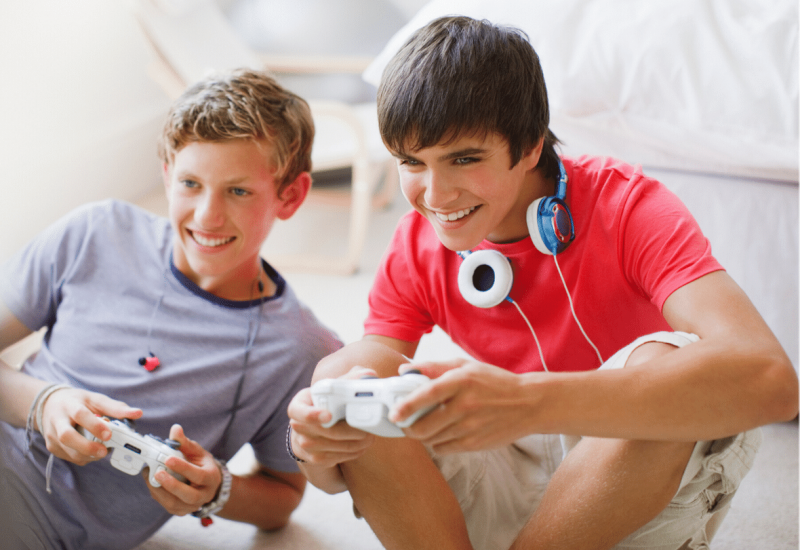
Anxiety was already high. Coronavirus made it worse.
Adults can usually shelter children from some of the stresses and anxieties of the world. We can largely protect them from the seriousness of that big car accident, the panic of a stock market collapse, or even an overseas terror attack. However, COVID-19 is a global crisis that is affecting the lives of teens in a very real way.
“I was already prone to worry. Now, there is so much uncertainty that some days I feel crippled”
For young people who already experience anxiety and fear, the COVID-19 crisis and isolation is adding fuel to the fire.
“I worry in lots of areas but mostly around my school work. Sometimes, I am crippled and frozen when I have to face exams and assessments that feel too much for me. I just think I’m going to fail and then my thoughts spiral and I just can’t face it. But lately, the coronavirus has made these thoughts worse. I think that maybe I’m getting it, and I worry that half the world is going to die, and that maybe I won’t see my friends again and I can’t even hug them or be close if they get sick. This is in my mind everyday.
Brianna, 14yrs
3 ways COVID-19 is adding to anxiety for teens
1. Worry about getting the virus
Most teens will not be worried that they have the virus, but some with anxiety will see every hint or similar symptom as a sign that “I must have it”. Health Anxiety is a real condition, and when there is a lot of media and attention on a certain deadly disease, it can lead thoughts to our own aches, pains and symptoms. Suddenly, teens who had never worried about their health are double-thinking every ailment.
2. Isolation from friends and activities
Don’t underestimate the difficulty of isolation for teens. Adolescents are building social and emotional connections and their peer group becomes their #1 source of support*. For many teens, home does not feel like their “safe place” and many will be missing those they feel most comfortable with. Even when home is safe and stable, they will be going stir crazy (as will many of us!).
3. Uncertainty about, almost everything
Most humans create structure and routine in our lives in order to feel safe and in control. Adolescents are already in a stage of life when their internal world is often chaotic, and so familiarity and routine assists them in avert anxiety and fear. During this time, there are so many unanswered questions and the messaging is changing daily.
- When can I see my friends?
- When will school go back to normal?
- When will dad get work again? When will I do my own job?
- Will more people die?
These are huge questions for teens. The closures and isolation measures are impacting our daily freedoms and many teenagers are struggling to frame it.
3 Things we can do to help teens through the Coronavirus
It’s so important that the adult community bring a greater level of understanding and grace to teenagers during these unprecedented times. There are 3 things we can do right now to help.
1. Model Calmness
These are difficult times for all of us. As adults, we too may feel anxious. We might be worried for our own health or that of someone we love. We may have lost income, be unable to meet obligations, and have our own adult-sized stresses. Teenagers will be sensing the added stress that is on their own parents, teachers and community.
However, the significance of the moment creates an opportunity to model resilience and mature responses to hardship. If adults are able to model calmness and hope, then this reduces the anxiety and fear that some teens are experiencing. The opposite is also true, that if our reaction is to catastrophise and panic, we may add to their anxiety.
2. Moderate media intake
People can spend hours a day feeding on every bit of global news and communication on the pandemic. Consuming lots of information can create the illusion that we are in control as we know everything there is to know. However, diverting attention to other interests and activities is a healthier way to address anxiety and fear. Focusing all our energy and attention on “the problem” will inevitably create a greater level of anxiety. Helping teens focus on other events, relationships and activities will disrupt the constant worry and spiralling fear. Shoot for a balanced consumption of media, and help teens find joy in everyday activities.
3. Invite conversation
Inviting a teen to talk about their feelings is one of the greatest gifts you can give. Young people are constantly being told what to do, where to be, how to talk, when to talk and what they should/ shouldn’t say. Inviting an open conversation about how they are feeling or what they think gives them a chance to process. Anxiety is often minimised when the fears are spoken out loud and given air time.
Teens will also benefit from hearing you express your own concerns in a calm and hopeful way.
Does anxiety affect your family? Has it been better or worse with the coronavirus? How do you address the fears and anxieties that arise?


